The Dhaka Times Desk The number of Rohingyas who have entered Bangladesh so far means that approximately 450,000 Rohingyas have taken refuge in Bangladesh. And half of these refugees are children. Many of them have no or lost parents. What will be the future of these children?
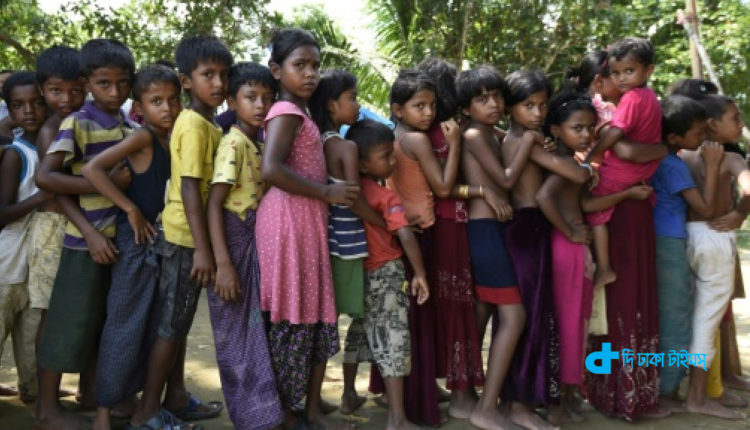
Burma's military crackdown on the Rohingya in Arakan State is seen as one of the worst in recorded history. Such torture on people is not often seen. Because in 1971, the Pakistani army attacked the unarmed Bengalis, but the Bengalis gave a toothless reply. Bengalis resisted. But the case of Rohingyas is completely different. They were attacked by their own army and terrorist groups of their own country. Due to which no resistance was possible for them. But the most human rights violation in the attack on the Rohingyas is the abuse of children. No choice was made.
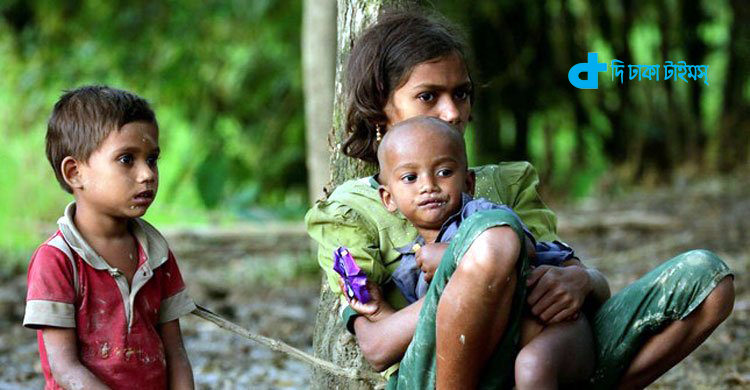
From August 25 to last Thursday, 4 lakh 29 thousand refugees have taken refuge in Bangladesh. Half of them are children. Among these children, 1100 children have no parents. Or they lost their parents. About 55,000 Rohingya children who have received asylum are suffering from malnutrition. 6 thousand 775 children are severely malnourished. Bangladesh is responsible for taking care of these children. The humanity shown by Bangladesh is rare. A review of immigration issues around the world shows that many rich countries have also deported immigrants. They did not seek asylum as refugees. But Bangladesh has shown humanity despite being a poor country.
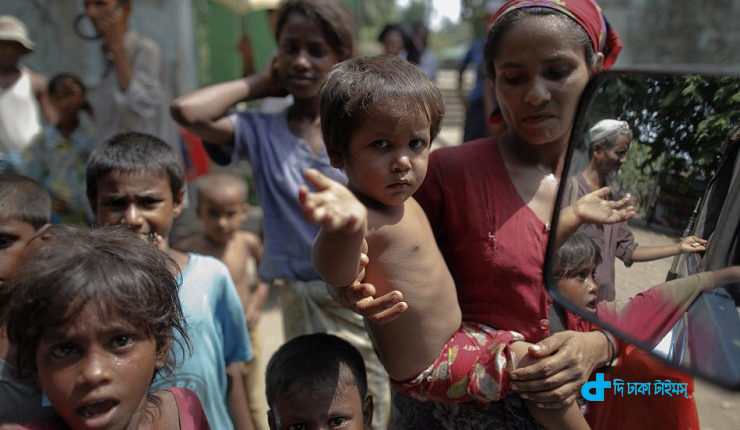
Now the question is who will take the responsibility of raising so many children and protecting their health? Bangladesh should seek the cooperation of various health organizations of the world. Because it is very important to provide proper medical care to these malnourished children.
Not only Muslims, but also some Hindu families who fled Myanmar's Rakhine state in fear of their lives have taken shelter in Ukhia's Kutupalong. There, these families, especially the children, have to live in a house made for a chicken farm.
There are children who cannot even say their own names well. They don't even know where their parents are.
Such is the case with many children. The parents may have been burned by fire provided by the country's army. Or lost somewhere. In a word, their future is almost uncertain.
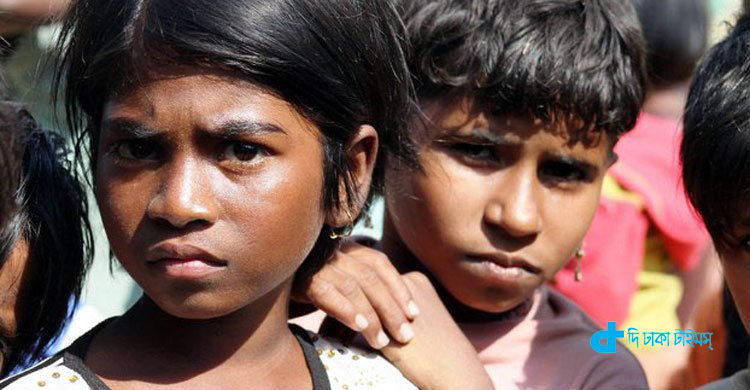
The media has published news about the tragedy of a child named Farid Alam. He only knows his name. He can't even tell his age. Two or three teeth have fallen out and are just starting to grow again. Mud up to his knees. Her hair is loose. Bekhappa is wearing a big t-shirt. He climbed the hill from Tolatuli in Mangdu, Rakhine State, Myanmar and entered Bangladesh. His parents, only elder brother are not alive.
Farid Alam said in response to a question, about a day before Qurbani Eid. The 'Meletaris' entered their villages and started burning houses. Then they started shooting randomly. Farid started running in fear. While running, he was once met by other familiar people of the village. His father got the news from them. None of Taiyab, mother Ayesha Khatun and elder brother survived. butchered and killed. Farid's uncertain journey began since then. After plowing one mountain after another, sometimes eating trees, vines and leaves, sometimes eating bean seeds, he spent 10 days and arrived at the border of Bangladesh. He came to Hakimpara with the people of the village. When asked what he will do now, where will he go, Farid says, if everyone goes back, he will also go back. There is no mother, she will never come, but the child cries for her mother.
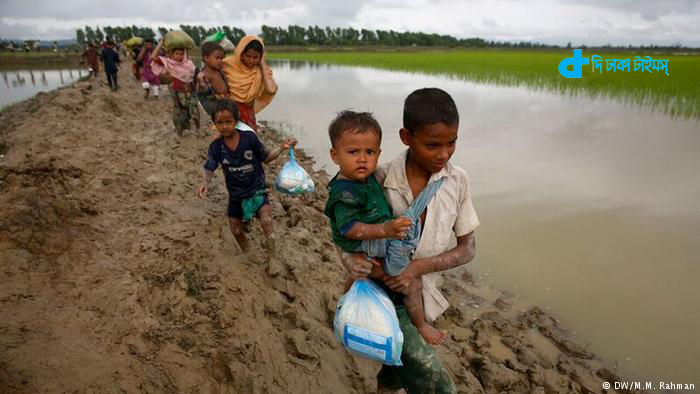
There are many more children like Farid Alam in the Hakimpara refugee camp in Thyngkhali, Ukhia, Cox's Bazar. Many painful events have happened in their lives. These incidents make us sad.
The worst incident in the history of the world that the Burmese army has perpetrated will haunt the Myanmar army for as long as there is a human being on earth. This tendency to politicize in the name of religion will be one of the worst precedents in the history of the world, as Buddhist terrorists have attacked Muslims.


